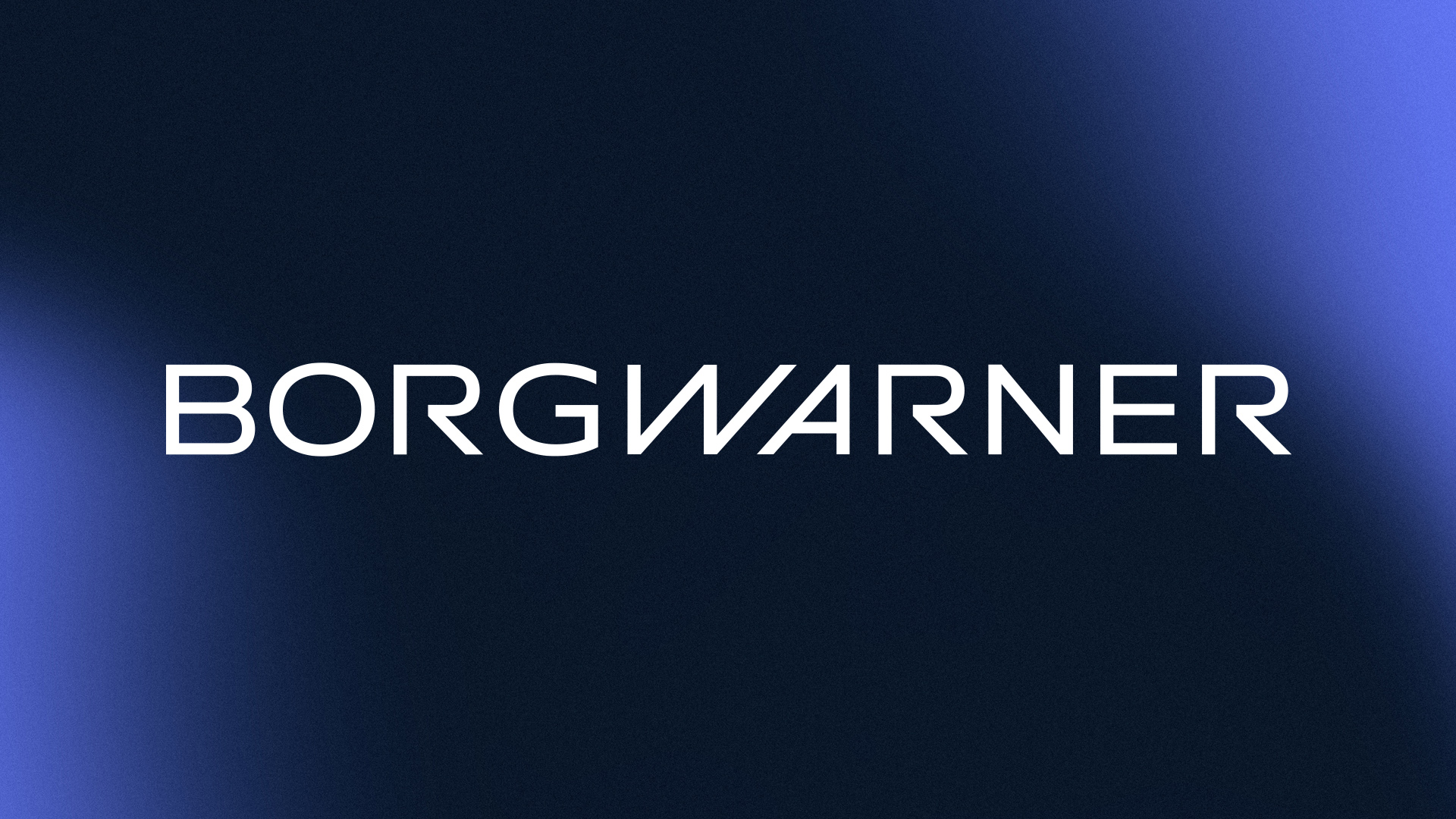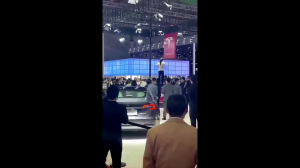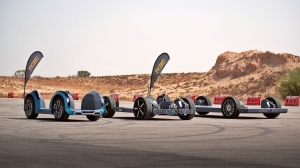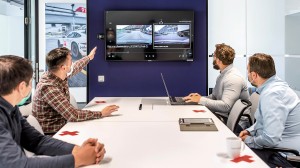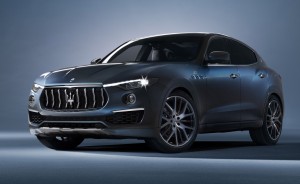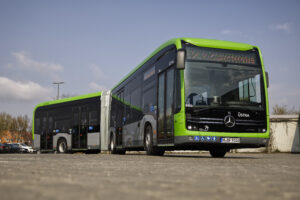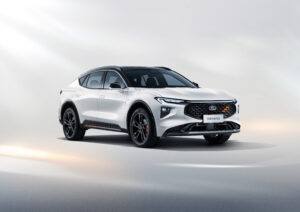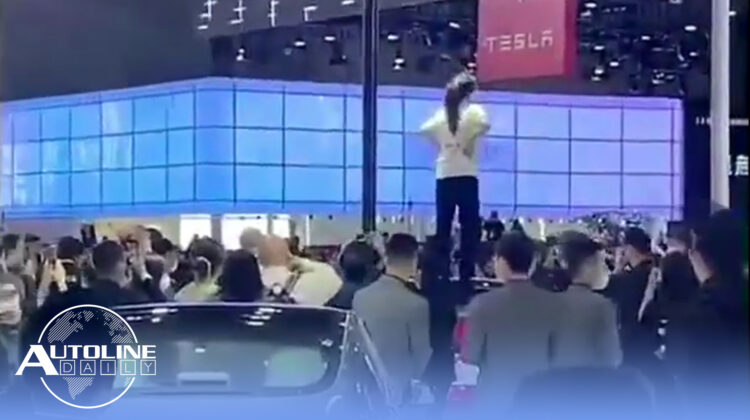

Listen to “AD #3062 – Does China Feel Threatened by Tesla?; BMW Aiming for Better/Cheaper EVs; 1st Ford Mostly Developed in China” on Spreaker.
Follow us on social media:
Runtime: 10:34
0:07 Chinese Government Complains About Tesla Safety
1:16 BMW Aiming for Better/Cheaper EVs
3:05 Israeli Startup Sees More Interest for EV Skateboard
3:58 Porsche Using Video Game Software to Train ADAS
4:43 ZF Introduces New AV Supercomputer
5:36 Schaeffler Bringing EV & Fuel Cell Tech to China
7:03 Maserati Shows Off Levante Hybrid
8:00 Mercedes Debuts 2nd-Gen Battery for Citaro Bus
8:41 EVOS is 1st Ford Developed Mostly in China
Visit our sponsors to thank them for their support of Autoline Daily: BorgWarner, Bridgestone, Intrepid Control Systems and ZF.
This is Autoline Daily, the show dedicated to enthusiasts of the global automotive industry.
DOES CHINA FEEL THREATENED BY TESLA?
Bloomberg reports that the honeymoon for Tesla in China may be over. Tesla is being attacked in the state-run media about problems with brakes and batteries catching fire. Several weeks ago Tesla’s were banned from military and government installations in China. This week, a branch of the Communist Party said Tesla should respect Chinese consumers and comply with local laws and regulations. Another branch of the Party said Tesla was not making an effort to find the cause of its problems. Yesterday a video went viral of a customer jumping on top of a Tesla on display at the Shanghai Auto Show this week, denouncing the company. She was detained by the police and Tesla says she’s widely known for protesting about brake issues on its cars. All this comes at a time when government-supported Chinese automakers are coming out with EVs that compete with Tesla. But despite the government complaints, Chinese consumers are buying up Teslas at record rates.
BMW WILL LAUNCH NEUE KLASSE OF VEHICLES
By 2030, BMW is aiming for all-electric vehicles to account for at least 50% of its global sales. To help with that transition, the automaker will launch what it calls its Neue Klasse of vehicles by the middle of the decade. It hasn’t revealed many details about them but it did say they will have similar range and manufacturing costs as its internal combustion engine models. To achieve that, BMW will increase the energy density of the battery cells while reducing the amount of high cost materials used in the batteries. And by the end of the decade, the company says it will equipping its EVs with solid-state batteries, which it says are more cost effective, safe, powerful and recyclable. BMW will demonstrate that technology in a prototype before 2025.
And be sure to join us for this week’s Autoline After Hours. The topic will be about sustainable materials because our special guest is Deborah Mielewski, who’s in charge of sustainability at Ford. So join us this Thursday for a deep dive into the benefits of using more environmentally friendly materials in vehicles.
ISRAELI STARTUP SEES MORE INTEREST FOR ITS EV SKATEBOARD
Israeli startup REE Automotive is seeing a lot of interest in its modular EV skateboard platform. Last year, it partnered with Mahindra to develop commercial vehicles based on its architecture. Last week, it signed a deal with Magna, to have the supplier help it manufacture and bring its platform to market. And now it’s collaborating with self-driving startup, Navya, to develop a Level 4 autonomous system using its platform and Navya’s AV technology. For those of you not familiar with REE’s platform, it houses the battery in the floor, while the powertrain, suspension, braking and steering components are integrated into the wheel arches at the corners. It’s designed for commercial applications and can range in size from a small urban delivery vehicle to large vans.
PORSCHE USES VIDEO GAME SOFTWARE TO TRAIN ADAS
I would guess you probably know that AV companies test their autonomous vehicles virtually so they can throw scenarios at it that they might not experience often in the real world. But did you know, in some cases, those virtual worlds are created using the same software that’s used to develop video games? Well, that’s the case at Porsche. Turns out the same game engines that are able to make life-like reflections, textures and intense battles are also good for making virtual worlds to test advanced driver assistance systems in. And not only that, Porsche says it will use the tech to allow new customers to virtually sit in the car they just ordered, long before it rolls off the assembly line.
ZF INTRODUCES NEW AV SUPERCOMPUTER
While automakers are making the headlines at the Shanghai show, suppliers are making some news of their own. ZF introduced a supercomputer that it says is ideal for a range of different functions, including autonomous cars all the way up to Level 5. Called ProAI, it’s smaller, faster, uses less energy. It’s powered by a GPU but ZF designed it so automakers can use GPUs from different chip makers. And depending on the application, it can use passive cooling, air cooling or liquid cooling. It’s quite compact, only 24x14x5 centimeters, or about 9x5x2 inches. And it can be scaled up to 1,000 trillion operations per second. It goes into production in 2024.
SCHAEFFLER BRINGING EV & FUEL CELL TECH TO CHINA
And Schaeffler is positioning itself to be a major supplier of EV and fuel cell components in China. It has a range of electric motors, ranging from 20 to 300 kilowatts of power hybrids or BEVs that are on display in Shanghai. It’s also displaying this intriguing concept for what it calls Intelligent Corner Modules. They contain the tire, wheel, hub motor, brakes, steering and suspension components into one corner unit. That would greatly improve assembly time for an automaker. Schaeffler also showed its fuel cell stack, which is the core of fuel cell systems. While China is a leader in battery electric cars, it’s also pushing heavily for the development of fuel cells.
MASERATI LAUNCHES 1ST HYBRID SUV
Maserati is expanding its hybrid lineup with a version of the Levante that debuted at the Shanghai auto show. It uses the exact same setup as the Ghibli Hybrid, which combines a turbocharged 2.0L 4-cylinder engine with a 48-volt starter/generator, an additional electric supercharger and a small battery pack. The setup combines for a total of 330 horsepower and thanks to standard all-wheel drive, the Levante Hybrid will do 0-100 km/h in under 6-seconds. Maserati also says it’s lighter than V6 versions and better balanced with the battery mounted in the rear of the vehicle. While styling is the same, like most hybrids it features blue accents in and around the vehicle to signify this isn’t your typical gas burner. No word on price or launch date just yet for the Levante Hybrid.
MERCEDES INTRODUCES 2ND-GEN BATTERY FOR CITARO BUS
In other EV news, Mercedes is improving the electric range of the articulated version of its Citaro bus. It’s doing that with a second-generation lithium-ion battery, which has more capacity than previous batteries. The old setup features 243 kWh of battery capacity, while the new one has 10 battery packs that combine for 330 kWh of capacity. Mercedes would only say that range increases considerably. But if there was any concern that the battery would run out, there’s also a pantograph mounted on the roof that collects current from overhead power lines at bus stops.
FIRST FORD MOSTLY DEVELOPED IN CHINA
Here’s an interesting vehicle Ford revealed in China, called the EVOS. What makes this vehicle unique is that it’s the first Ford developed by a mostly China-based team. It appears to be based on the Escape/Focus platform and mixes the styling of a sedan and SUV. We’d also say that you could have probably replaced the Ford logos with ones from Polestar and nobody would have said a thing. The interior is dominated by a large display that merges several screens under one piece of glass. All the usual stuff is displayed and passengers are also able to watch videos and movies on their side of the car. And thanks to the same electrical system of the Mustang Mach-E that big screen will always be up-to-date. Ford didn’t say anything about the powertrain, but we’re guessing it’s mostly ICE-based. We say that because the EVOS will be produced by Changan Ford and sold and serviced through Ford’s distribution network. If you remember from last week, Ford has set up a BEV division that will do its own R&D, manufacturing, and sales of electric vehicles.
But that’s a wrap for today. Thanks for watching and we’ll be right back here again tomorrow.
Thanks to our partner for embedding Autoline Daily on its website: WardsAuto.com
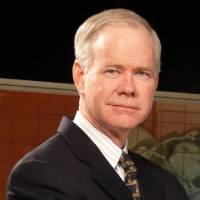
John McElroy is an influential thought leader in the automotive industry. He is a journalist, lecturer, commentator and entrepreneur. He created “Autoline Daily,” the first industry webcast of industry news and analysis.



